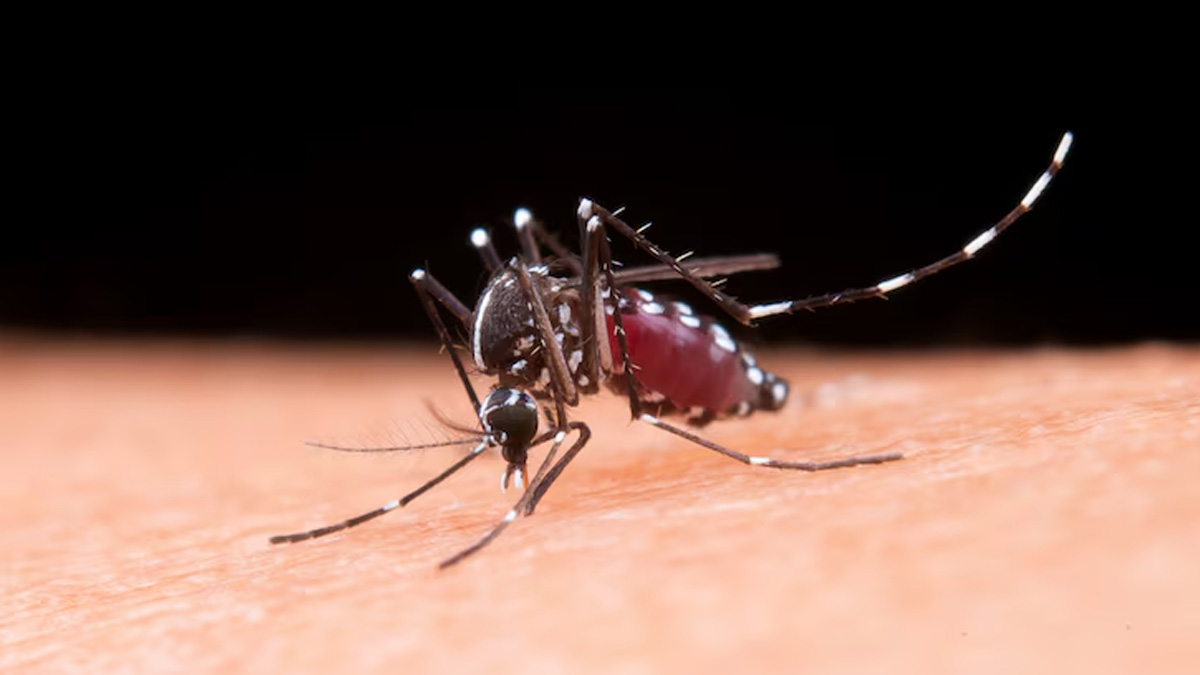
Dengue fever, a mosquito-borne viral infection, poses a significant health risk to infants due to their still-developing immune systems. With nearly half of the global population living in areas where dengue is endemic, it's crucial for parents and caregivers to recognize the early warning signs in young children. Prompt detection and timely medical intervention can prevent severe complications and ensure a smoother recovery. Here are the key symptoms to watch out for in infants battling this potentially serious illness.
Table of Content:-
To understand how to identify warning signs of dengue in infants, OnlyMyHealth interacted with Dr Abhishek Chopra, Consultant — Neonatologist and Paediatrician, Cloudnine Group of Hospitals, New Delhi (Punjabi Bagh). He explains, “50% of the global population lives in areas where dengue is endemic.” Recognizing the early warning signs is crucial for timely intervention and preventing complications.
1. High Fever
A sudden high fever, often reaching 104°F or higher, lasting between 2 to 7 days, is a primary indicator of dengue in infants. The fever may fluctuate, making it challenging to differentiate from other common viral infections. Dr Chopra advises, “Paracetamol is the safest medication to reduce fever in such cases. Avoid aspirin or ibuprofen, as they can increase the risk of bleeding.”
2. Rash

A distinctive rash typically appears within 2 to 5 days after the onset of fever. It starts as small red spots on the chest, back, or abdomen and may spread across the body, often accompanied by itchiness. This rash can be a telltale sign of dengue and should not be ignored.
Also read: Dengue Fever's Hidden Danger: Expert Explains Neurological Complications Of Dengue
3. Decreased Appetite
Infants with dengue often refuse to feed or show a significant reduction in appetite. This can be due to discomfort caused by fever and other symptoms. Prolonged refusal to feed can lead to dehydration, which may worsen the condition.
4. Irritability or Restlessness
“Persistent irritability or fussiness in an infant should raise concerns,” says Dr Chopra. Infants may cry more than usual, become clingy, or seem unusually restless. This behaviour change can be an early warning sign of dengue.
5. Lethargy and Fatigue
Extreme tiredness, weakness, and a lack of interest in usual activities can be signs of dengue. If your infant seems unusually drowsy or sluggish, it is essential to seek medical advice promptly, as it may indicate a severe progression of the illness.
6. Vomiting and Diarrhoea
Gastrointestinal symptoms such as vomiting and diarrhoea are common in infants with dengue. These symptoms increase the risk of dehydration, complicating the illness and making it harder for the child to recover.

7. Abdominal Pain
Persistent or severe abdominal pain, especially when accompanied by vomiting, could indicate a severe form of dengue known as dengue hemorrhagic fever (DHF). It requires immediate medical attention to prevent complications.
Also read: Dengue Prevention During Monsoon: Essential Tips For Staying Safe
8. Bleeding Symptoms
One of the most dangerous signs of severe dengue is bleeding. This could manifest as bleeding gums, nosebleeds, or small red or purple spots under the skin (petechiae). “In some cases, there may be blood in the stool or vomit, which is a sign of a critical condition,” warns Dr Chopra.
9. Difficulty Breathing
Infants with dengue may develop respiratory symptoms like cough, a runny nose, or laboured breathing. These could indicate fluid accumulation in the lungs, a critical complication of severe dengue, and should be addressed immediately.
10. Cold or Clammy Skin
Pale, cold, or clammy skin, especially if accompanied by a rapid or weak pulse, may signal shock, a medical emergency requiring urgent intervention.

When to Seek Immediate Medical Attention
If your infant exhibits any of the following severe symptoms, seek medical help immediately:
- Persistent vomiting
- Severe abdominal pain
- Unusual bleeding
- Signs of dehydration (sunken eyes, dry mouth, reduced urination)
- Difficulty breathing
- Extreme lethargy or unresponsiveness
Preventing Dengue in Infants
Preventing mosquito bites is key to protecting infants from dengue. Dr Chopra emphasizes, “Use mosquito nets and insect repellents approved for infant use. Dress your baby in long-sleeved clothing to minimize skin exposure and eliminate standing water around your home to prevent mosquito breeding.”
Early detection and prompt medical attention are vital in managing dengue, especially in infants. By recognizing these warning signs, parents and caregivers can ensure their child receives the necessary care to recover swiftly and safely.
Also watch this video
How we keep this article up to date:
We work with experts and keep a close eye on the latest in health and wellness. Whenever there is a new research or helpful information, we update our articles with accurate and useful advice.
Current Version
